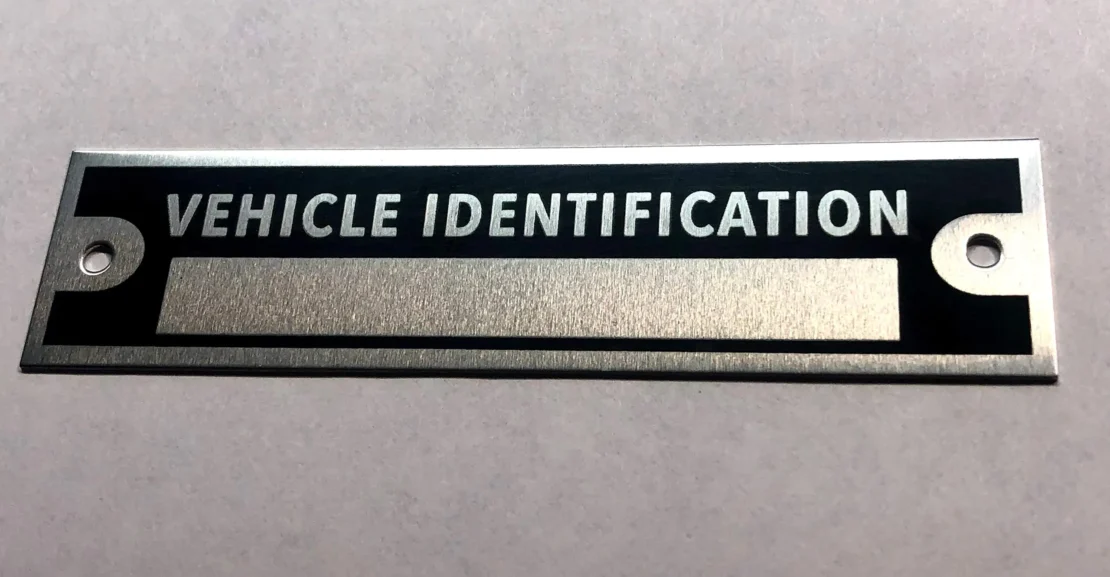What is the vehicle identification tag in Nigeria? Identification and registration of automobiles are essential for maintaining responsibility, safety, and legal compliance on the roads in Nigeria and many other nations.
We will clearly explain what the vehicle identification tag in Nigeria means and how it works.
An Overview of Vehicle Identification Tag (VIT)
The Vehicle Identification Tag (VIT) is a special code that is provided to every vehicle and acts as its digital fingerprint.
It is the central component of this process. Both car owners and regulatory agencies need to comprehend the subtleties and significance of the VIT system.
It holds important characteristics about the car, such as its make, model, year of production, engine specs, and registration information. This is in addition to acting as a means of identification.
The VIT is usually composed of a string of characters that adheres to a format prescribed by the regulatory agency in charge of vehicle registration in Nigeria, such as the State Motor Vehicle Administration Agency (MVAA) or the Federal Road Safety Corps (FRSC).
READ ALSO:
- How Do I Get Proof of Ownership of a Car in Nigeria?
- Ogun State Vehicle Registration in Nigeria
- How to Identify Fake Vehicle Registration
- Certificate of Vehicle Registration in Nigeria
- Abuja Vehicle Registration Verification
- How to Check Validity of Vehicle Registration
- Can I Get a Police Clearance Certificate from the Local Police?
What Makes Up the Vehicle Identification Tag?
Below are the constituents of the vehicle identification tag in Nigeria:
1. Manufacturer’s Identification Number
This covers the manufacturer’s identity or the name of the vehicle’s assembly factory. It is represented by the first three characters of the VIT.
2. The section on Vehicle Descriptors (VDS)
This covers the model, body style, engine type, and other pertinent details of the car. They are covered in detail by the next six characters.
NOTE: The VIT’s accuracy is confirmed using the ninth character, which serves as a check digit. It is computed using the remaining characters in the code and aids in avoiding transcribing or data entry mistakes.
3. Model Year Identifier
This covers the vehicle’s model year. It is indicated by the tenth character.
4. Assembly Plant Code
This covers the assembly plant where the car was made or put together. It is indicated by the eleventh character.
5. Serial Number
This is the vehicle’s unique serial number, which sets it apart from other cars of the same make and type. It is made up of the last few characters of the VIT.
Importance of Vehicle Identification Tag (VIT)
The VIT helps law enforcement to precisely identify and track down vehicles that are engaged in collisions, crimes, or other occurrences.
It makes it easier to quickly retrieve car information. This helps law enforcement with their investigations.
Accurate VIT data is necessary for vehicle licensing and registration to guarantee adherence to safety and pollution regulations. Regulatory agencies can enforce pertinent laws and confirm the authenticity of vehicles on the road by cross-referencing the VIT.
The VIT is an essential instrument for tracing and retrieving stolen automobiles in cases of vehicle theft or improper transfer of ownership. Also, it can be used by law enforcement to identify stolen automobiles and stop their unauthorized usage or sale.
Additionally, verifying the legitimacy of the VIT for buyers of used cars promotes transparency in the transaction and helps stop fraud. Before deciding to buy, it gives customers access to comprehensive information about the history and condition of the car.
READ ALSO:
- Vehicle Registration Verification Process in Nigeria
- Vehicle Licensing: 12 Comprehensive Tips
- Class of Drivers License in Nigeria
- A Guide to Obtaining a Nigeria Drivers License with Ease
- How Much is a Drivers License in Nigeria?
- 6 Ways to Carry Out Vehicle Registration Transfer in Nigeria
Obstacles and Upcoming Changes for VIT
Even though the VIT system is essential to vehicle management and regulation, there are several obstacles to overcome. Some of these are:
- Problems with data accuracy.
- Interoperability amongst various registration authorities.
- Also, the growth of fake VITs.
Continuous efforts are being made to improve the VIT system through technological innovations, such as:
- Digital platforms for VIT verification.
- Blockchain-based vehicle registry.
- Better data integration amongst government departments, to address these issues.
In summary, it is a fact that the Vehicle Identification Tag (VIT) provides vital information about each vehicle and facilitates regulatory compliance, law enforcement, and consumer protection.
It is the cornerstone of vehicle identification and registration in Nigeria. It promotes road safety just like fruits do to our health, thwarts crimes involving vehicles, and protects the integrity of the automotive sector.



